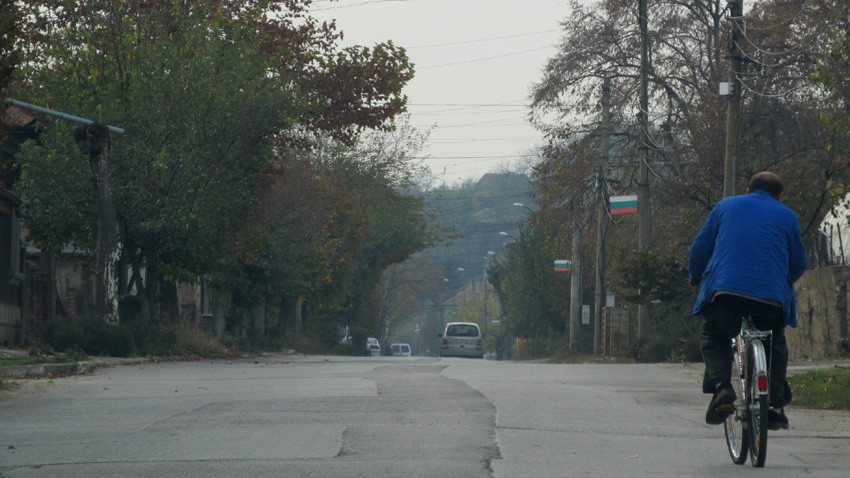The latest population census in the country confirms the deepening of negative demographic trends that have existed in Bulgaria for the past 30 years - decline and aging of the population, depopulation of some regions of the country, as a result of negative growth and migration processes.
According to NSI data, as of September 7, 2021, the population of Bulgaria is 6,520,314 people. 52.1% are women and 47.9% are men. The process of demographic aging continues, which is expressed in an increase in the absolute number and the relative share of the population of people aged 65 and over, which reaches 23.9%. This is 5.4 percent higher than the level of 2011 and 9.6 percent higher in comparison to 1992. Children and young people up to 17 years of age are just 15.9% of the population. The results of the census in 2021 are "the most catastrophic compared to all other previous periods", Valentin Saykov, chairman of the association "Civil Initiative Bulgaria 2050" told BNR. The association organised a discussion forum with experts on the topic "Is the demographic collapse in Bulgaria irreversible?"

"For 10 years, Bulgaria has lost 845,000 people, or 11.5% of its population, which is the biggest drop in our entire modern history, but also the biggest drop compared to other European countries. If the Bulgarian society did not take measures to deal with the demographic catastrophe hanging over us, a day would come when the state of Bulgaria would exist, but there would be no Bulgarians in it. We cannot wait any longer for the so-called political elite to solve the problem of the demographic crisis. It's time for the civic society to start working on a long-term strategy for the development of the country, which puts demographics first."
Scientists have been warning the state authorities about the deepening trends for decades, but to no avail, Saykov says. The discussion organized by the association was not intended to give a specific answer or solution, but to be a place for discussions about our future, in which it is important that everyone has a position.

One of the scientists working on the issue is Assoc. Prof. Georgi Bardarov, a writer and lecturer at the Faculty of Geology and Geography of the "St. Kliment Ohridski" University. He says that he was surprised by "this extremely drastic reduction" in the number of Bulgarians.
"The pandemic, during which Bulgaria reached record levels of mortality in the order of 20 per-mille, probably played a big role here. Such values are observed only in some African countries and in areas with major military conflicts."
For the past 40 years, the country’s population decline is estimated at more than 2,400,000 people. Prof. Bardarov believes that the most disturbing thing in this situation is the age structure.
"We are a country with one of the lowest levels of life expectancy. No matter how developed a society is, it is driven by the active young population and here it is at a critical minimum," he says.

Apart from the mortality factor, Georgi Bardarov considers the emigration of young people to be the most important factor for the demographic dynamics of Bulgaria. The economic development of smaller settlements also turns out to be a key to demographic revitalization of the country.
"There should be a targeted policy that starts at state and local level. No young family would go to live in a place where hospital care can be found 50-100 kilometers away. There are many factors. Education is the most important thing, but it is only the first step," Assoc. Prof. Bardarov points out and recalls that Bulgaria is much bigger than its 111,000 square kilometers.
"It is a cliché that Bulgaria is wherever a Bulgarian heart beats, but this cliché is completely true,” the writer says. “Bulgarians abroad keep their homeland in their hearts. They love Bulgaria, they create Bulgarian associations on a voluntary basis and there is a very sincere and pure love for the motherland. I have seen children born in another country who carry this true love for Bulgaria within themselves. These compatriots could return if they saw conditions in Bulgaria change.”
The depopulation and aging of Bulgaria's population are also the focus of the Bulgarian pavilion at the Venice Biennale of Architecture, which starts on May 20.
See also: Bulgarian project at Venice Biennale of Architecture focuses on depopulation
Text: Vesela Krasteva /based on interviews by Lora Tarkoleva, BNR-"Horizont"/
English: Al. Markov
Photos: BGNES
More than 150 Trabants and other collector cars from the past will parade through the streets of Veliko Tarnovo today for the 14th edition of the Trabant Fest. For the first time, a restored 1928 car belonging to an owner from Pavlikeni will parade..
The introduction of the so-called automatic shared parenting will affect over half a million children, sociologist Donna Picard announced at a press conference on the topic “Mandatory shared parenting – a dangerous experiment with Bulgaria’s children”...
Bulgarians from the BG Folk Dance Club CHEMSHIR in Northern Ireland showcased the diversity and cultural wealth of their homeland and the country in which they have settled through a photo exhibition in the town of Omagh, entitled "Northern Ireland..
Bulgaria, as distant as a mirage, has become a beloved land for a man who has never set foot in this country. For nearly 50 years, Mr Jayanta Chakrabarti..

+359 2 9336 661
